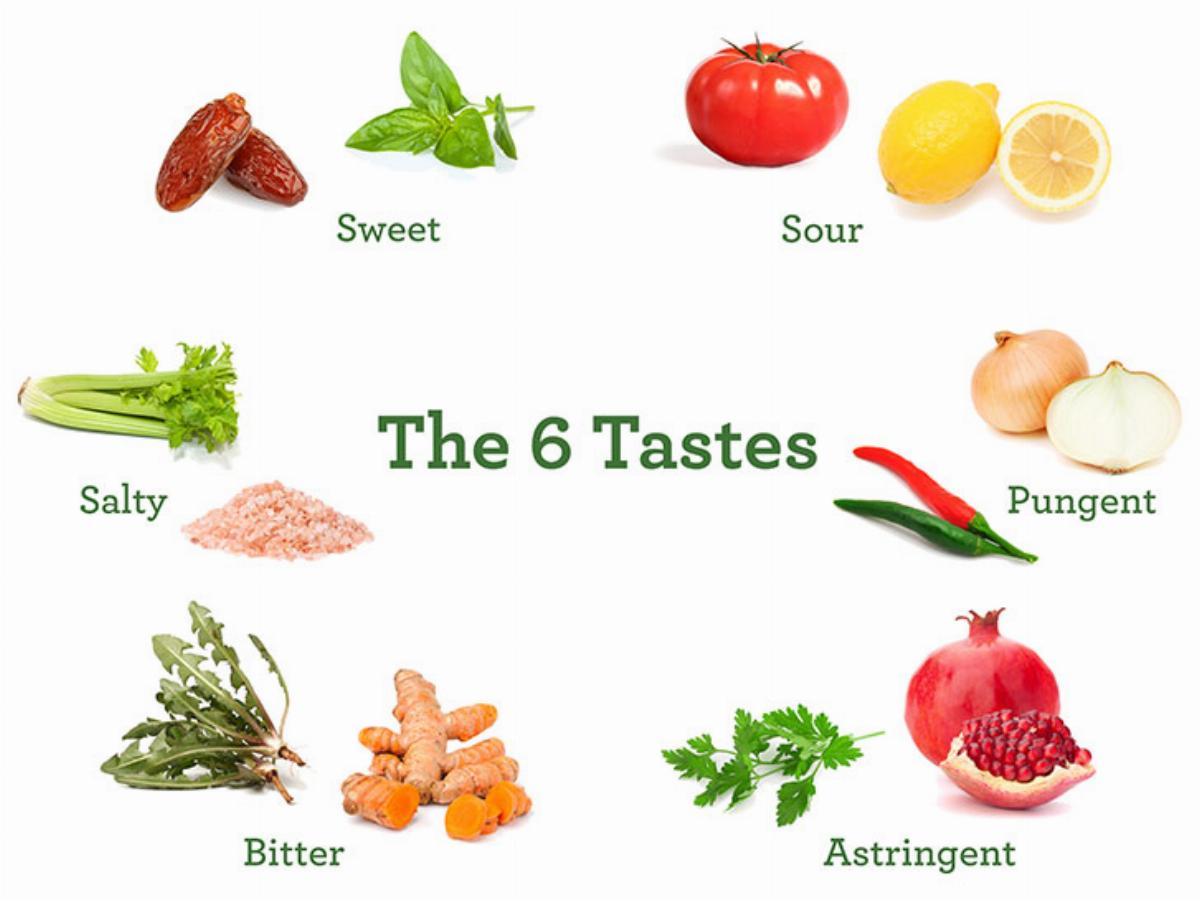Six Tastes by Ayurveda
Ayurveda recognises six tastes: sweet, sour, salty, pungent, bitter and astringent. All foods and herbs are classified by taste. The taste of a food gives the key to its actions upon the digestion, the body and ultimately emotions and sentiments. In Sanskrit, the word for taste and emotion is the same - ‘rasa’.

A well-rounded meal uses all six tastes in proportion.
1. Sweet (मीठा)
Sweet taste is also called neutral taste. This is to distinguish it from the idea of simple sugar or desserts. It includes proteins, carbs and fats, as well as most fruits and vegetables. About 90 percent of food is of the sweet or neutral taste.
Examples: Grains, lentils, fruit, vegetables, dairy.
2. Sour (खट्टा)
Sour taste includes all foods that are aged, ripened, fermented or naturally acidic. They are considered to be partially pre-digested foods or digestive aids. Thus, they help stimulate appetite. Too much sour can lead to blood toxicity, heartburn, acidity or itching.
Examples: Cheese, sour fruit, citrus fruit, yogurt, fermented foods, wine.
3. Salty (नमकीन)
Salty tastes stimulate the flow of saliva and the creation of hydrochloric acid in the stomach, thus aiding digestion. Too much salt disturbs the blood, leads to inflammation or fluid retention and overwhelms all the other senses.
Examples: Sea plants, salt.
4. Pungent (कटु)
Pungent taste includes all foods and spices that are spicy, hot and sharp. The warming quality stimulates the digestive fire known as ‘agni’. It reduces fluids and has a cleansing action. Too much pungent food can lead to excessive heat, burning, dehydration, restlessness and irritability.
Examples: Cloves, chillies, garlic, onion.
5. Bitter (कड़वा)
Bitter taste is considered balancing and healing and is an essential part of cooking.
Examples: Aubergine, spinach, leafy vegetables, turmeric.
6. Astrigent (स्तम्मक)
This is the dry taste left in the mouth after a sip of black tea or dry white wine.
Examples: Broccoli, pomegranate, quinoa, cranberry.